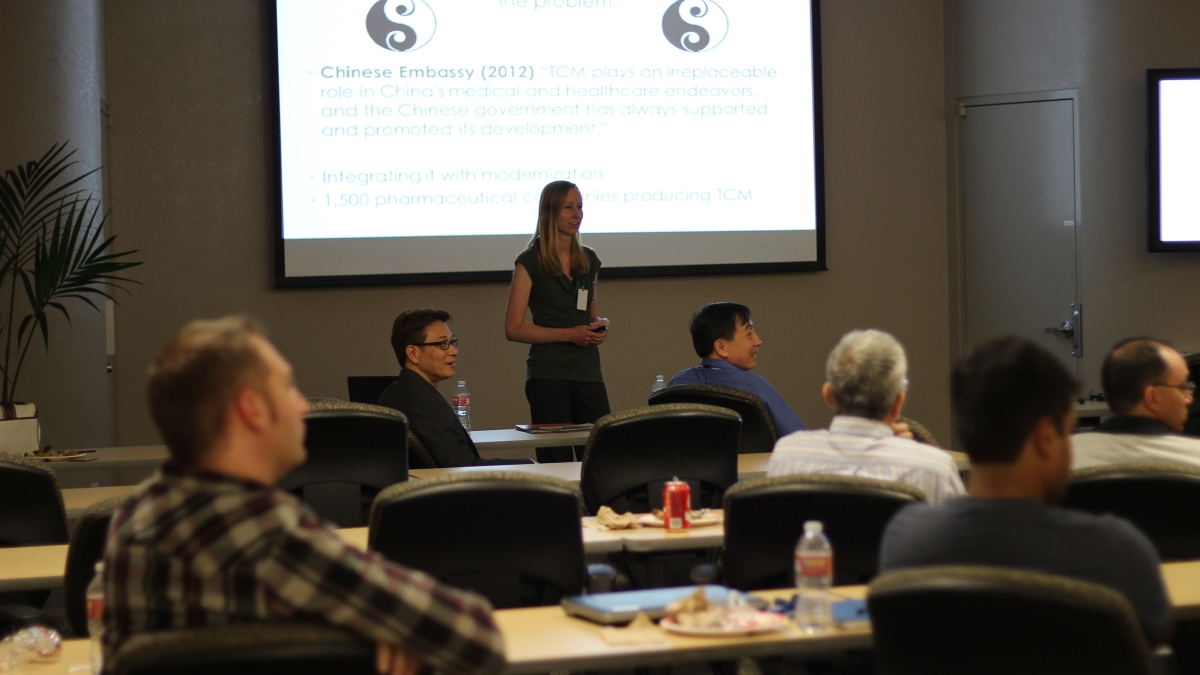ASU helps biomedical company's employees learn Chinese

A local health technology company is partnering with two Arizona State University Chinese-based programs to teach its employees the language and culture.
Medtronic, which produces health technology through biomedical engineering, is working with ASU’s Confucius Institute and ASU's Chinese Language Flagship program on an eight-week long course for 10 employees.
“We want them to not only be able to use the language but also have more of a cultural awareness and interest in the Chinese culture,” said Fannie Tam, associate director of the Confucius Institute. “I think it can help them build a better relationship and communication with the people from the other culture. Showing respect is really the best way of doing business.”
The Confucius Institute is a resource center that promotes the Chinese language and culture in schools and the general public. The Chinese Language Flagship program provides study abroad and internship opportunities in China for ASU students who are studying the language in order to help these students become global professionals.
Jian Fei, a Medtronic principal automation engineer, said that the company has been in China for 30 years, but they want to expand their presence in the emerging market. Fei is also a part of the Asian Employee Resource Group, which is an organization whose intention is to help businesses in their home countries. In addition to learning the language, they also want to increase cultural awareness.
“We feel that they can communicate better and it will help them to do their jobs,” Fei said.
Visiting teachers from China who work in the Confucius Institute prepared the curriculum, which began in February, Fannie Tam said. The institute already offers Chinese classes to ASU students and the general public, so they tweaked the material to focus more on business and business culture. For example, when introducing their names, the employees also learn how to say their job title in Chinese as well.
Some Medtronic employees already know Chinese, such as Fei who is from China. They take time throughout the week to tutor other employees. Fei said the employees he has helped have expressed interest in continuing to learn Chinese.
The Chinese Language Flagship program teaches Chinese and provides cultural opportunities, such as study abroad, to prepare undergraduate students to be global professionals. Anthony Tam, assistant director of the program and Fannie Tam’s husband, said students sharing their travel experiences in China help the employees on what to expect.
“One of the things they [students] brought up is when you first land at Beijing airport [is] what transportation mean are you going to be taking,” Anthony Tam said. “Students can share [advice such as], ‘There are some real taxis, but there are black taxis, like black cabs. You better talk to someone inside the terminal and get onto the right cab'.”
ASU students who are a part of the flagship program were also invited to give cultural presentations. Fannie Tam said this was a good way to bring back their experience and share it with a group of professionals.
Annie Carson, a global health junior, lived in China for three years from 2006 to 2009 with her family and spent the 2013 summer there on a study abroad trip. She gave a presentation at Medtronics on the differences she’s seen between U.S. and Chinese health care. The Chinese health-care system focuses more on a holistic approach compared to the U.S. with its biomedical approaches, and Carson’s premise focused on how Western companies developing technology can implement them in the holistic model.
“[For] one of the engineers, I think, it sparked an idea for him as far as researching how they could get traditional Chinese medicine doctors involved in a patient’s experience with heart problems,” Carson said. “They said, ‘Okay, this is an interesting idea that our company could look into further in getting connected,’ so that was really rewarding.”
There are plans to further this partnership down the road, Fannie Tam said.
Fei said they want to continue the program in the fall semester, and they are discussing whether to add more advanced courses or continue with the beginning one. Fei said they would also like to hear from more students from the flagship program.
“We are just neighbors and ASU is a resource to us in terms of Chinese language class and other areas,” Fei said.
Written by Alicia Canales